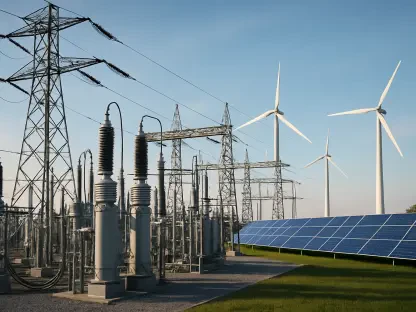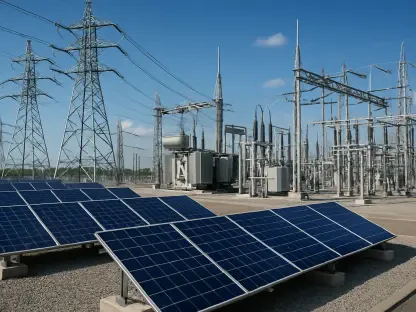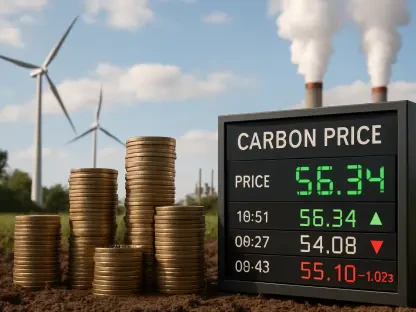A bipartisan effort to promote the year-round availability of E15 fuel in the United States is gaining momentum. E15, which is a biofuel blend containing 15% ethanol, has garnered support from numerous sectors, including the American Petroleum Institute (API), agricultural trade groups, and convenience store associations. The proposed Nationwide Consumer and Fuel Retailer Choice Act, introduced by Sen. Deb Fischer and co-sponsored by lawmakers from both major political parties, aims to make E15 accessible nationwide.
The Environmental Protection Agency (EPA) has already taken steps to facilitate the distribution of E15. It announced plans to allow E15 sales in eight Midwestern states starting from April 28 and aims to extend the policy to the entire country by the summer vacation season. Proponents believe this move can significantly impact the country’s economy and energy landscape.
Economic and Environmental Benefits
Lower Gas Prices and Job Growth
Advocates argue that the expansion of E15 can bring about several economic benefits, including lower gas prices and increased job growth, particularly in agriculture-dependent rural areas. The agricultural sector stands to benefit significantly as the demand for ethanol could boost corn prices and farming incomes. Lower gas prices would directly benefit consumers, providing immediate relief from fuel costs.
U.S. Rep. Angie Craig has emphasized the role of biofuels as immediate tools to combat climate change while enhancing the energy infrastructure. Many supporters believe that a unified nationwide policy is crucial to avoid the inconsistencies and complications of state-by-state regulations. This unified approach ensures that consumers across the country have consistent access to E15, which can facilitate broader adoption and market stability.
Energy Independence and Climate Goals
Beyond the immediate economic advantages, expanding the use of biofuels like E15 is also seen as a step towards enhanced energy independence. By reducing reliance on foreign oil, the U.S. can become more self-sufficient and resilient against global oil market fluctuations. Furthermore, the biofuel industry could play a pivotal role in the country’s climate goals, providing a cleaner-burning alternative to traditional gasoline.
However, the environmental benefits of E15 are not without controversy. While it burns cleaner, resulting in lower greenhouse gas emissions during combustion, it has been associated with higher evaporative emissions. These emissions can contribute to ground-level ozone and smog, raising questions about its overall environmental impact. The production process for biofuels also comes under scrutiny, particularly if it relies on less environmentally friendly practices.
Environmental Concerns and Criticism
Critics’ Perspective on Environmental Impact
Critics of the E15 expansion express several environmental concerns. One of the primary issues is the potential increase in evaporative emissions, which can contribute to higher levels of ground-level ozone and smog. This poses health risks in urban areas already grappling with air quality issues. Additionally, long-term environmental impacts could be negative if biofuel production methods lead to deforestation or rely on less environmentally friendly practices.
There is also a concern that an unbalanced focus on biofuels could detract from efforts to promote other, potentially more sustainable, environmental solutions. Critics argue that focusing too heavily on E15 may divert attention and resources from the growth of the electric vehicle (EV) market, which holds promise for substantial reductions in greenhouse gas emissions. Support for alternative transportation solutions, such as developing walkable and bikeable urban areas and improving public transportation, is seen as crucial for achieving broader environmental goals.
Balancing Biofuels with Emerging Technologies
Navigating the complexities of biofuel policy requires a balanced approach that considers both short-term and long-term impacts. A comprehensive energy strategy should not only incorporate biofuels like E15 but also support emerging technologies and infrastructures that contribute to a sustainable future. Encouraging informed public discourse is essential for evaluating policies based on their genuine environmental benefits rather than potential greenwashing efforts.
To this end, it is crucial to maintain a nuanced perspective on the role of biofuels in the broader environmental and energy landscape. While E15 offers immediate economic and environmental advantages, long-term sustainability may depend on a multifaceted approach that includes advances in EV technology, sustainable agricultural practices, and investments in renewable energy sources.
Future Considerations and Policy Implications
Policymaking and Public Discourse
The debate surrounding E15 underscores the importance of informed policymaking and public engagement. Lawmakers and stakeholders must carefully evaluate the trade-offs between economic benefits, environmental impacts, and the overarching goal of sustainability. Transparency in the decision-making process can help build public trust and support for policy initiatives.
Awareness of potential greenwashing is also essential for ensuring that actions genuinely benefit the environment. Policymakers and consumers alike must scrutinize claims and assess the true impact of biofuels on both local and global scales. This includes considering the entire lifecycle of biofuel production, from crop cultivation to fuel consumption, and recognizing the interconnectedness of energy, agriculture, and environmental policy.
Aligning with Broader Goals
To align with broader environmental and infrastructure goals, the push for year-round E15 availability must be approached holistically, integrating biofuels into a diverse energy portfolio. This strategy helps the U.S. reduce its carbon footprint while fostering economic growth and strengthening energy resilience.
As discussions about E15 continue, focusing on long-term sustainability is crucial. Policymakers need to carefully evaluate the benefits and drawbacks of extending biofuel use to ensure that today’s decisions contribute to a cleaner, greener future. Engaging with experts, stakeholders, and the public is vital to navigating these complex issues and achieving a balanced, forward-thinking energy policy.
The nuanced debate on year-round E15 availability underscores the need to consider both short-term and long-term impacts. Ensuring alignment with environmental and infrastructure goals requires thorough policy evaluation and active public engagement. A comprehensive energy strategy fosters sustainable development and supports diverse, future-oriented solutions.









